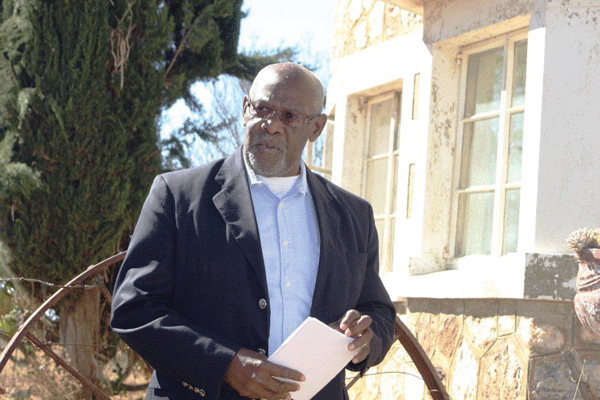
A new documentary film on the Matabeleland and Midlands atrocities soon after Zimbabwe’s independence claims the mass killings were probably planned before independence.
BY STAFF REPORTER
The film by Bulawayo-based journalist Zenzele Ndebele, titled Gukurahundi Genocide 36 Years Later, was launched in the city last night.
Ndebele interviewed Zapu and Zipra stalwarts, including Dumiso Dabengwa, former dissidents, a former 5th Brigade soldier, victims of rape and a villager who was detained at the Bhalagwe “concentration” camp in Matabeleland South.
Dabengwa said he believed the military campaign targeting the late vice-president Joshua Nkomo’s Zapu supporters was planned by “both Zanu and I want to think the British were involved”.
Dabengwa and other prominent Matabeleland leaders attended the launch of the documentary.
In the film, former Zipra fighter Vincent Hillary Ndlovu, now living in exile, explains how he was hounded out of the national army and ended up as a “dissident”. He said he operated in Tsholotsho, but was arrested and spent 15 years in jail after he was arrested in Botswana.
Misheck Velaphi, an administrator of the Zipra-owned Nitram Farm, said the alleged arms caches were used as an excuse to deploy the North Korean-trained 5th Brigade by former president Robert Mugabe.
- Chamisa under fire over US$120K donation
- Mavhunga puts DeMbare into Chibuku quarterfinals
- Pension funds bet on Cabora Bassa oilfields
- Councils defy govt fire tender directive
Keep Reading
He said both Mugabe and President Emmerson Mnangagwa, who was State Security minister at the time, knew the arms belonged to the ANC’s military wing Umkhonto weSizwe.
Velaphi was arrested with Dabengwa and late Zipra commander Lookout Masuku in connection with the arms.
He was the only one who was convicted and sentenced to three years for possession of arms of war.
Velaphi claims Mnangagwa and Mugabe were used by apartheid South Africa to weaken the ANC, which operated side by side with Zapu.
He claimed that there were mass graves in Bulawayo’s Luveve area of ex-Zipra combatants that were killed when the clashes began at Entumbane.
Prior to the launch, Ndebele claimed that he had been harassed by the police who demanded that he must first be cleared by the Censorship Board.
He received support from the National Peace and Reconciliation Commission (NPRC).
Mnangagwa last week said he would accept any recommendations by the NPRC on how to deal with the Gukurahundi issue after he was asked whether he would apologise by CNN.











